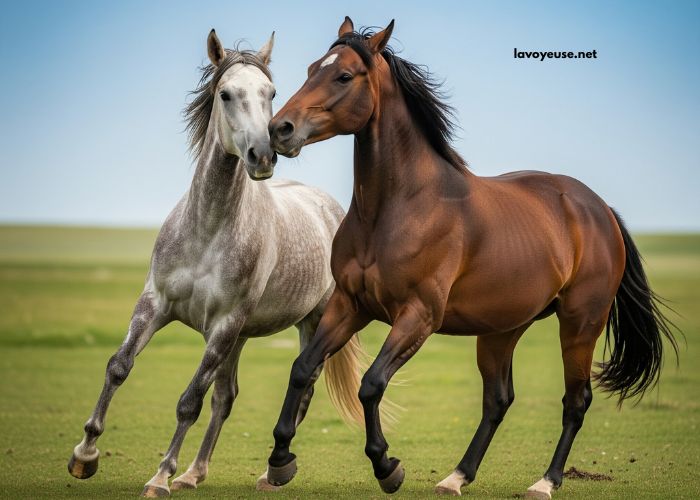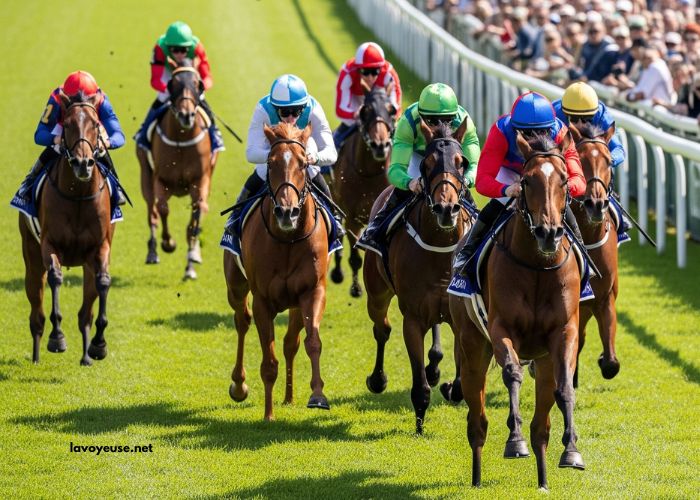Turf betting can often seem like an intricate web of statistics, odds, and instinctual decisions. Understanding “Les 5 Pions Turf” is key to mastering this exciting field.
This guide will delve into five essential components that can significantly enhance your betting strategy, allowing you to make informed decisions that lead to more successful outcomes.
Whether you are a seasoned bettor or just starting out, grasping these concepts can transform your approach and potentially increase your returns.
Key Points:
- Understanding the Basics: Knowing the foundational elements of turf betting is crucial for success.
- Strategies Matter: Implementing effective strategies can improve your chances of winning.
- Continuous Learning: The world of turf betting is ever-evolving; staying updated is vital.
What are the Key Components of “Les 5 Pions Turf”?
What is Turf Betting?
Turf betting involves wagering on horse races, where the track is made of grass. It’s popular worldwide, especially in Europe and the UK. The excitement stems from various factors, including the horse’s pedigree, jockey experience, and race conditions.
Understanding how these factors influence outcomes is fundamental. For instance, some horses perform better on softer turf, while others thrive on firmer ground. Engaging with the details of each race and the horses involved will enrich your betting experience.
Why are Pions Important?
The term “Pions” translates to “pawns” in English, referring to small, strategic elements in betting. In turf betting, each “pion” represents a crucial factor that influences your decision-making.
These could include horse form, trainer statistics, track conditions, and more. Recognizing these pions helps bettors build a more comprehensive understanding of the race and increases their ability to make educated bets. By analyzing these elements, you can identify patterns and trends that could lead to better wagering choices.
How to Analyze Horse Form?
Analyzing horse form is a fundamental skill in turf betting. Horse form is typically represented by the horse’s past performances in previous races. It’s crucial to look for consistency in a horse’s results, as well as improvements over time.
For example, if a horse has been placing in the top three consistently but recently showed signs of improvement, it could be worth considering for your bets. Pay attention to the conditions under which the horse performed well or poorly.
What Role Does the Jockey Play?
The jockey’s skill and experience can significantly impact a horse’s performance. A seasoned jockey understands how to navigate the course, make strategic decisions during the race, and communicate effectively with the horse.
For instance, if a less experienced jockey is riding a strong horse, it may not perform at its best due to the lack of guidance. Researching jockey statistics and their past performances can provide insight into the potential success of a horse.
Why is Trainer Influence Significant?
Trainers play a pivotal role in preparing horses for races. Their experience, techniques, and strategies can affect a horse’s performance. For instance, a trainer with a proven track record of success at a specific track or with a particular breed can provide an edge.
Analyzing trainer statistics and understanding their training methods can guide your betting choices. Take time to investigate trainers’ backgrounds and their relationship with the horses they prepare.
What Impact Do Track Conditions Have?
Track conditions are another critical factor that can affect race outcomes. Turf can vary from soft to firm, and horses often have preferences based on their training and past performances.
For instance, some horses excel in muddy conditions, while others struggle. Always check the weather and the track report before placing your bets, as these can significantly influence the race results.
How to Manage Your Bankroll?
Effective bankroll management is essential for long-term success in turf betting. Setting a budget, determining how much to wager on each race, and sticking to those limits can help prevent significant losses.
A common strategy is to only bet a small percentage of your total bankroll on any single race. Implementing strict bankroll management strategies can help you endure losing streaks without exhausting your funds.
What Are Betting Odds and How to Interpret Them?
Understanding betting odds is fundamental in turf betting. Odds reflect the likelihood of a horse winning and the potential payout for successful bets.
For example, if a horse has odds of 5/1, it means you would win $5 for every $1 wagered if that horse wins. Always compare odds from different bookmakers to maximize your potential winnings.
How to Use Statistics Effectively?
Statistics provide a wealth of information that can help inform your betting decisions. Key stats to consider include win percentages, average margins, and performance under various conditions. Using a statistical approach allows you to back up your betting choices with concrete data, rather than relying solely on gut feelings.
What Are Exotic Bets and Their Advantages?
Exotic bets, such as exactas, trifectas, and superfectas, can yield higher payouts than standard win, place, or show bets. However, they are also riskier and require a deeper understanding of race dynamics.
For example, a trifecta bet requires you to predict the first three horses in the correct order, which can be challenging but lucrative. Learning the intricacies of exotic betting can enhance your overall strategy.
How Can Technology Aid in Turf Betting?
In today’s digital age, various tools and platforms can aid in turf betting. From predictive analytics software to mobile apps that provide real-time updates and statistics, technology plays a crucial role in modern betting. Leveraging these resources can give you a competitive edge in your betting decisions.
What Psychological Factors to Consider?
The psychology of betting is often overlooked but can significantly affect decision-making. Cognitive biases, such as overconfidence or loss aversion, can lead to poor betting choices. Understanding your psychological tendencies can help you make more rational decisions. Awareness of these factors is essential for maintaining a disciplined approach.
Conclusion
Understanding “Les 5 Pions Turf” is essential for anyone looking to excel in turf betting. Each component—horse form, jockey skill, trainer influence, track conditions, and effective bankroll management—plays a crucial role in shaping your strategy.
By delving deep into these areas and continuously educating yourself, you can develop a robust approach that increases your chances of success. Remember, betting should remain an enjoyable experience; being informed and disciplined will help ensure that it stays that way.
FAQs
- What are the main factors to consider in turf betting?
The key factors include horse form, jockey experience, trainer influence, track conditions, and effective bankroll management. - How can I improve my chances of winning at turf betting?
Focusing on research, analyzing statistics, and employing sound betting strategies can significantly enhance your odds of success. - What is a value bet in turf betting?
A value bet occurs when you identify a horse that has a higher chance of winning than the odds suggest, allowing for greater potential returns. - How does bankroll management affect turf betting?
Proper bankroll management helps prevent significant losses and ensures that you can continue betting sustainably over time.
5. Why is continuous learning important in turf betting?
The betting landscape is always evolving; staying informed allows you to adapt your strategies and maintain a competitive edge.


